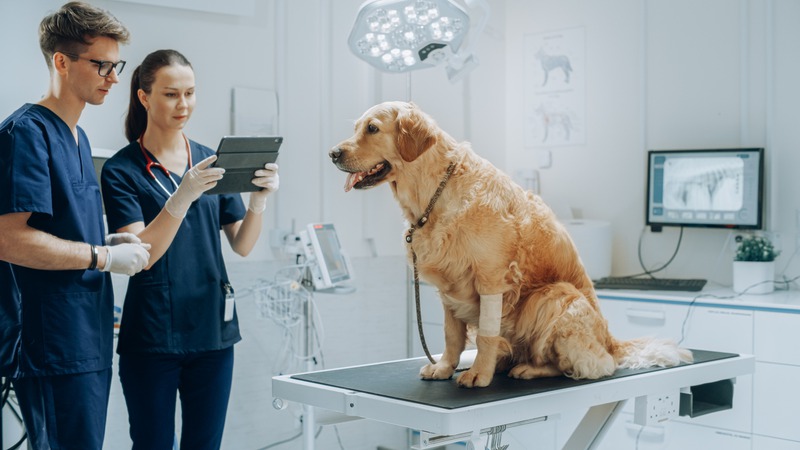
We all love our furry friends and want them to live long, happy lives by our sides. Just like us, pets need regular health check-ups and care to keep them in tip-top shape. That’s where preventive care comes in as a game-changer. It’s not just about treating illnesses; it’s about proactively managing health to avoid problems down the road. In this article, we’ll chat about why preventive care is so essential and how it can make a world of difference to your pet’s overall well-being.
The Pillars of Preventive Pet Care
Preventive care encompasses a variety of practices designed to keep your pet healthy. These include:
-
Vaccinations to protect against diseases
-
Regular wellness exams
-
Parasite prevention
-
Diet and nutrition
-
Exercise
-
Weight management
-
Dental care
-
The Relevance Of Preventive Care
Preventive care is vital for maintaining your pet’s health and well-being. Here’s why:
-
Early Detection: Regular check-ups can help detect health issues before they become serious.
-
Vaccinations: Essential for preventing infectious diseases.
-
Parasite Prevention: Protects against fleas, ticks, and heartworms which can cause life-threatening conditions.
-
Dental Health: Regular cleanings prevent gum disease, which can lead to systemic health issues.
-
Weight Management: Maintaining a healthy weight reduces the risk of diabetes, arthritis, and heart disease.
-
Behavioral Assessment: Identifies behavioral issues early, leading to timely intervention.
-
Bond Strengthening: Frequent vet visits strengthen the bond between pets and their caregivers.
-
Longevity: Proactive care can contribute to a longer, healthier life for your pet.
-
Urgent Care: Despite our best efforts at prevention, pets can get sick or injured unexpectedly. This is when knowing where to get urgent vet assistance in Clinton Township becomes vital.
The Impact of Vets on Preventive Care
Your veterinarian is your partner in your pet’s health journey. They offer valuable insights and care that can prevent minor issues from turning into bigger problems. Let’s dive into the crucial services they offer and how they contribute to the bigger picture of pet health.
-
Routine Health Assessments: A visit to the vet isn’t only for when your pet is under the weather. Routine health assessments are a cornerstone of preventive care, allowing for a comprehensive check-up of your pet’s health status.
-
Pet Health Education: Our vets are like libraries brimming with pet health knowledge. They can educate us on best practices for caring for our pets at home, making us well-equipped pet parents.
-
Tailored Prevention Plans: Each pet is unique, and so are their health needs. Vets can create tailored prevention plans that cater to your pet’s specific needs throughout their life stages.
This is also where additional resources come in. Many vets and clinics have websites full of valuable information, and it’s worth taking the time to learn more about the services they can offer by visiting these online platforms. They might even have tools to track your pet’s health records or send reminders for preventive care appointments.
The Financial and Emotional Benefits
Investing in preventive care for your pet may seem like an added expense, but it can save you money in the long run. Here’s how:
-
Preventing diseases means fewer treatments and lower vet bills later on.
-
Early detection of conditions can lead to more manageable and cost-effective treatments.
-
Reduced emergency visits thanks to a robust prevention plan.
On an emotional level, seeing our pets healthy and happy is priceless. Preventive care provides peace of mind, knowing we’re doing everything possible to care for them.
Role of Diagnostic Labs
In the quest to stay ahead of health issues, vet clinics often turn to diagnostic veterinary labs. These labs offer advanced testing to detect diseases early. By employing the latest technologies, diagnostic veterinary lab play a pivotal role in preventive care, as they can provide precise analysis of blood, urine, and tissue samples, leading to early diagnosis and treatment.
Final Thoughts
In essence, preventive care is the key to unlocking a healthier life for our pets. It’s about regular attention, love, and using available resources to ensure they remain with us, happy and healthy, for as long as possible. As pet parents, our responsibility extends beyond love and companionship; it includes making informed decisions on their health care, with preventive measures at the forefront. By keeping up with best practices, staying in touch with our vet, and knowing when and where to seek urgent help, we’re setting our pets up for a life of well-being.























































